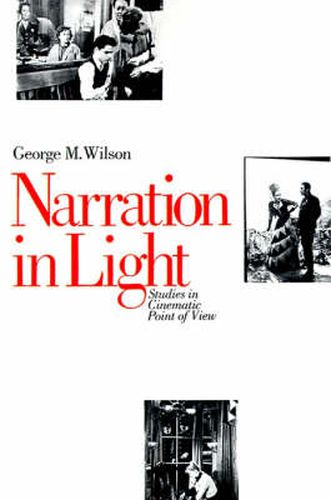Readings Newsletter
Become a Readings Member to make your shopping experience even easier.
Sign in or sign up for free!
You’re not far away from qualifying for FREE standard shipping within Australia
You’ve qualified for FREE standard shipping within Australia
The cart is loading…






A full understanding and appreciation of narrative film, George Wilson argues, requires a concept of point of view necessarily distinct from, yet comparable to, contemporary theories of point of view in prose fiction. Now available in paperback, Narration in Light lays the foundations for a new account of cinematic point of view. Focusing on the special ways in which a film controls the access of its viewers to the events that constitute its narrative, Wilson offers close viewings of five classic Hollywood movies: You Only Live Once, North by Northwest, Letter from an Unknown Woman, The Devil Is a Woman, and Rebel without a Cause. His enlightening and entertaining interpretations reveal surprising power and complexity in popular, major-studio films. Their point-of-view strategies allow them to present both obvious and oblique perspectives on their subjects, providing subtle critiques of ideology within conventional drama and narrative.
$9.00 standard shipping within Australia
FREE standard shipping within Australia for orders over $100.00
Express & International shipping calculated at checkout
A full understanding and appreciation of narrative film, George Wilson argues, requires a concept of point of view necessarily distinct from, yet comparable to, contemporary theories of point of view in prose fiction. Now available in paperback, Narration in Light lays the foundations for a new account of cinematic point of view. Focusing on the special ways in which a film controls the access of its viewers to the events that constitute its narrative, Wilson offers close viewings of five classic Hollywood movies: You Only Live Once, North by Northwest, Letter from an Unknown Woman, The Devil Is a Woman, and Rebel without a Cause. His enlightening and entertaining interpretations reveal surprising power and complexity in popular, major-studio films. Their point-of-view strategies allow them to present both obvious and oblique perspectives on their subjects, providing subtle critiques of ideology within conventional drama and narrative.